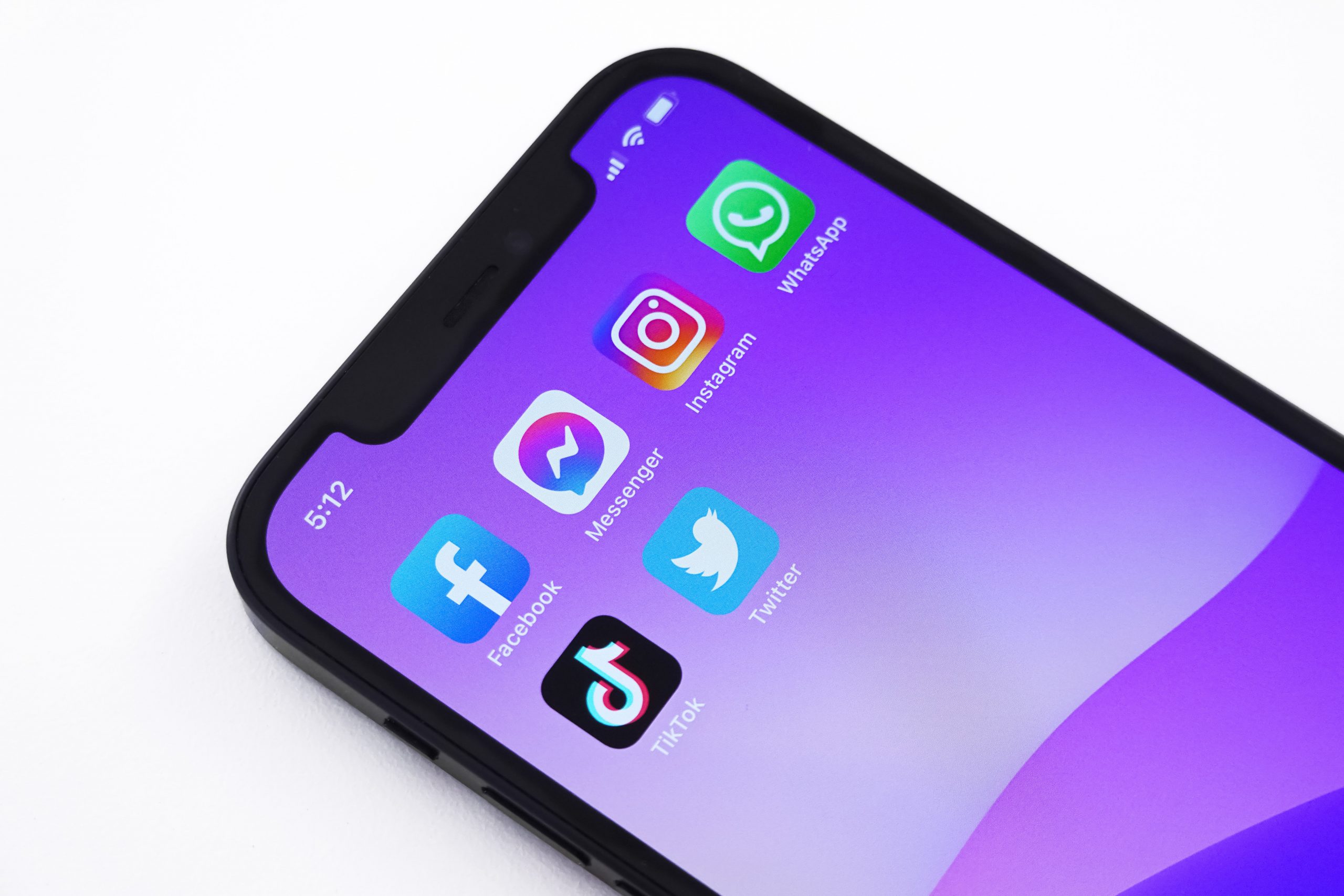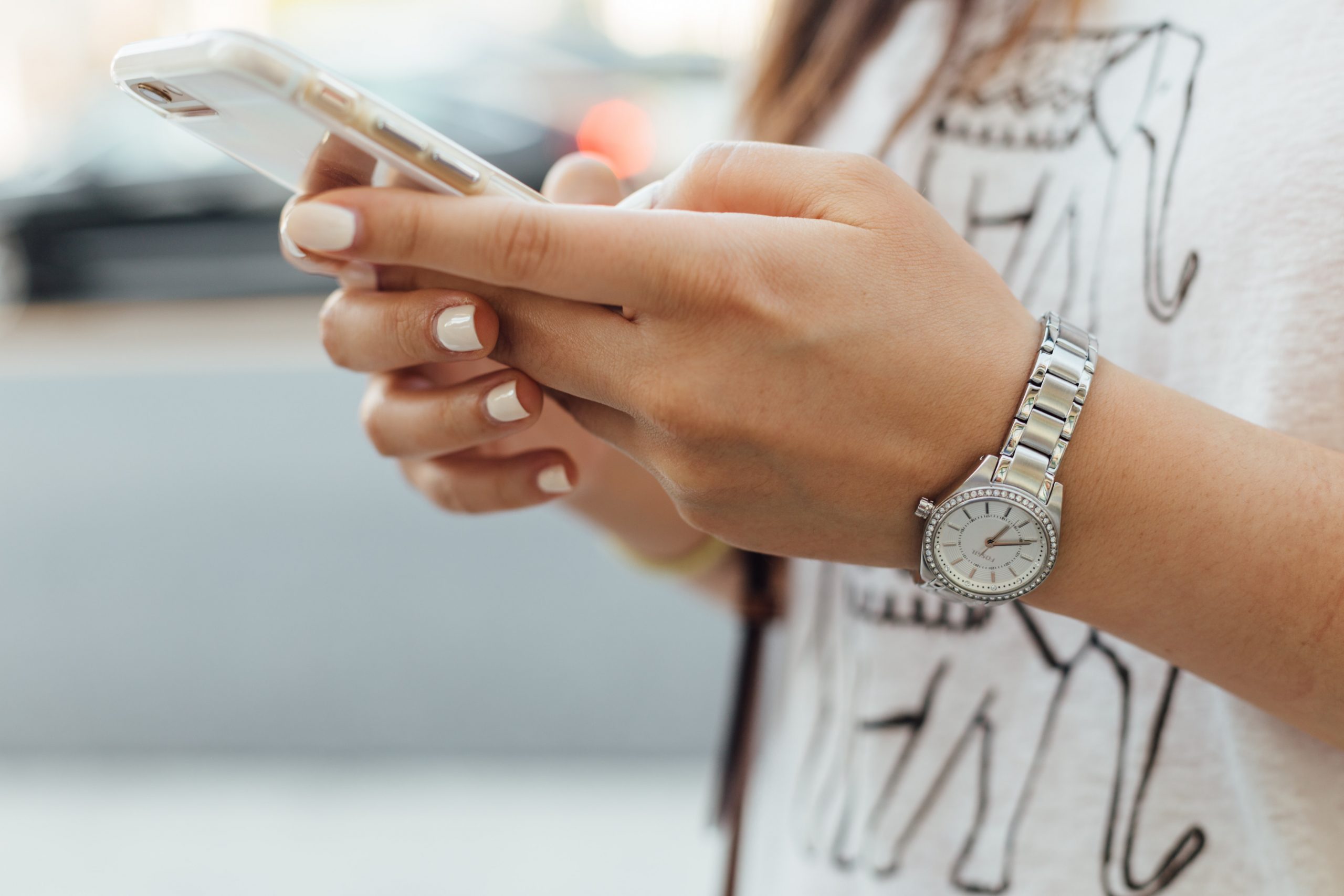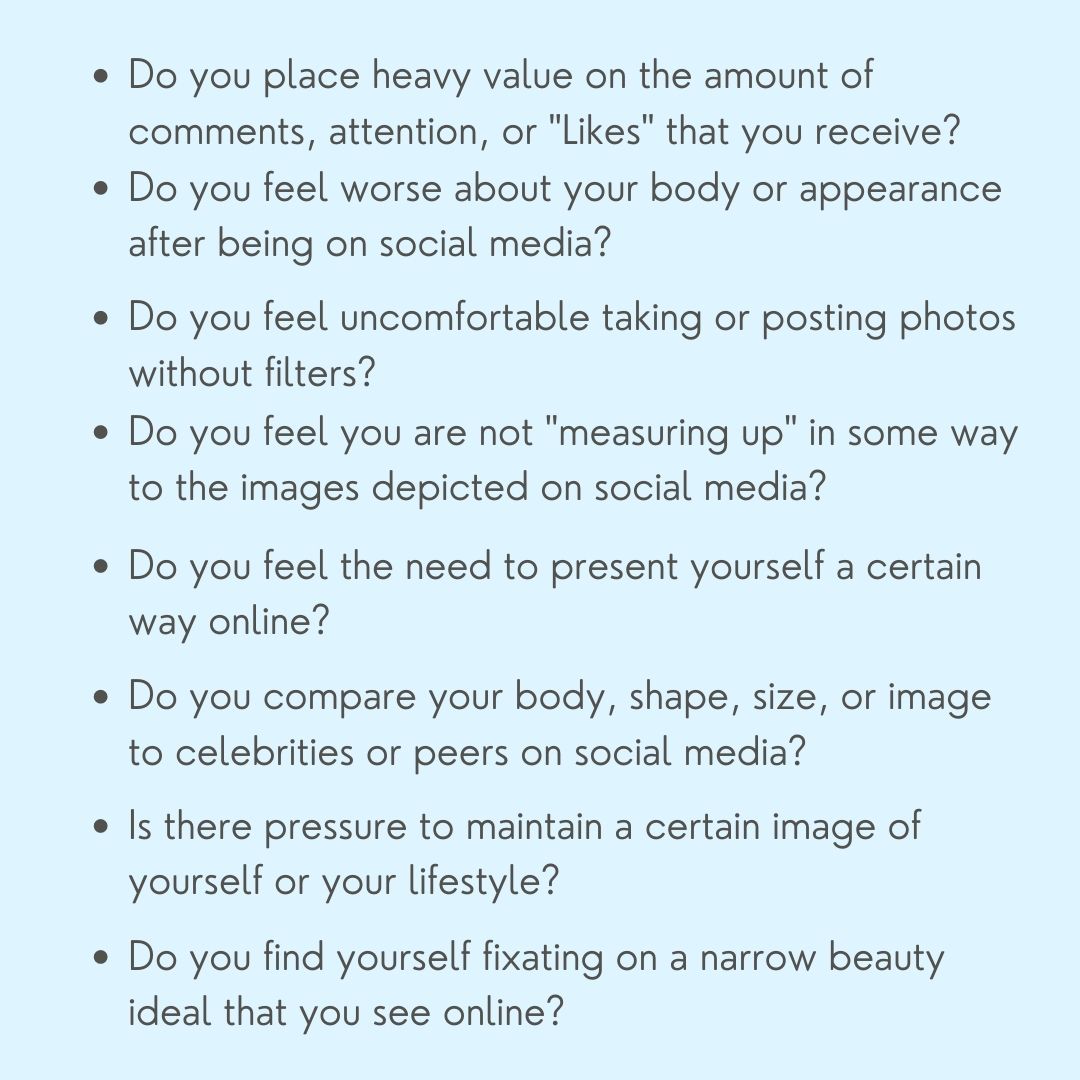Social Media and Body Image
In the age of Instagram, TikTok, and highly-edited selfies, we are constantly being flooded with images that boast enviable vacations, extravagant meals, luxurious lifestyles, and the “ideal” body and face. It can be hard not to compare if we feel that we’re not “measuring up” to the ideal standard in some way. These days, the lens of social media makes many people feel that their image is under constant scrutiny.

The Highlight Reel Effect
Everyone uses social media differently, which means its effects are not the same for everyone. It can be helpful to ask ourselves what we are hoping to get out of the experience each time we log on. Are we posting a photo of ourselves while anxious about how much attention it’ll get? Do you weed through dozens of photos every time you post just to pick the “perfect” one? Do you feel the need to prove to yourself or others that everything is rosy even while you struggle on the inside? Is there pressure to show your own “highlight reel” on social media because it seems like everyone else is happier, more successful, and attractive?
The “highlight reel” effect is a term that has been coined to describe the ways in which people present a carefully curated version of themselves online. We all want to look and feel our best online and it’s only natural that we want to show the best version of ourselves to others. The issue is that it can be difficult to recognize that the “highlight reel” others are showing us is not somebody’s life every single day. We start to think that other people have a better life, a better partner, a better social circle, a better job, a better body, better clothes and so on. We start to compare our true, messy, authentic selves and lives to something that is not reality, which leads to many of us feeling inadequate or lacking in some way. We wonder why our lives aren’t as “perfect” as theirs.
We start to forget that other people’s “highlight reels” are not their reality all the time. We don’t see their disappointments, failures, heartbreaks, or mistakes; we only see what they want us to see: perfection.
The Filter Effect
We are often exposed to highly-edited images of others that boast only a narrow ideal in terms of beauty, body shape, and size. When we only see highly-edited and filtered photos touting a specific ideal appearance on our Instagram stories and TikTok feeds, we might begin to compare ourselves and feel like we aren’t measuring up in some way. Whether it’s a social media influencer, ours peers, a celebrity, or even a stranger, it can be difficult not to judge ourselves harshly when we compare and believe that we aren’t as attractive, successful, or accepted as others.
What’s concerning is the amount of editing and retouching done to portray “perfection” in photos that lead to a false image that many of us buy into. With all the filters and apps out there at our disposal, we can easily take away, change, or “improve” the parts of ourselves that we deem unattractive or unfit to be seen and loved. We can now whip away acne and freckles with the tap of a button. We can enlarge our eyes and smooth our crooked nose. We can make our hair redder, our legs thinner, our skin brighter. Editing our photos to make us look the way we think we “should” has become so common in the age of social media that as we scroll through our Instagram feed and see perfect image after perfect image, it doesn’t even occur to us that the subjects may not even look like that in real life. We can get so accustomed to perfection that we no longer feel comfortable being our authentic, imperfect selves.

What Can I Do?
It may be helpful to remind ourselves that our self-worth is not defined by public approval and that social media only presents a one-sided version of everyone else’s best moments and most flattering photographs. We truly don’t have the full picture of what somebody’s life is like behind the scenes. You may be surprised to learn that they may struggle with insecurity, loneliness, or self-doubt.
So how do you know if social media is negatively affecting your self-esteem or body image? Take a moment to reflect on the questions below to gain some understanding on your own habits, thoughts, and feelings.

If you find that you’re feeling poorly after logging off from social media or comparing your appearance or lifestyle to the ones that you see online, it may be a sign that it’s starting to affect your mental health and self-confidence. If you notice this happening, it’s helpful to take a step back and limit your time spent on social media and reconnect with what’s going on in your own life. Giving yourself this space can allow for you to see things through a new lens and recognize that social media doesn’t actually reflect somebody’s life all day, every day.
Get back in touch with what makes you unique and confident, and what truly makes you happy – not what looks perfect through a screen.



